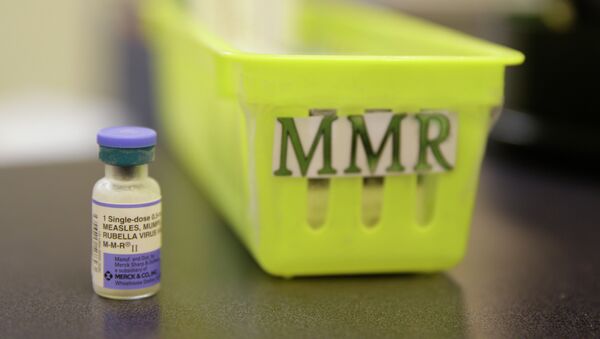The number of measles infections in New York’s Rockland County has hit 135; five new cases have been registered this week alone, The Daily Beast reports. When coupled with the 73 people diagnosed with the disease in Brooklyn, the total number of contaminations has topped 200 statewide, alarming local health officials. According to the website, a dozen recent cases have been registered in Orthodox Jewish communities.
Rockland County Executive Ed Day has branded the situation in his area “the longest measles outbreak since the disease was declared ‘eradicated’ nearly 20 years ago”, with a record-breaking number of infections. In his Facebook post, the official pointed at “the risks and dangers of being unvaccinated”.
“We have had to deal with the worry, fear and legitimate concerns of our citizens, especially those with infants who are to [sic] young to be immunized against this disease, one that could seriously medically impair or cause the death of that infant,” he posted.
The outlet cites New York City health authorities naming several possible reasons for the recent outbreak. This includes later-than-average vaccination, propaganda targeting vaccines and a considerable number of travelers from Israel, which is experiencing a measles outbreak.
READ MORE: ‘Community Harm’: Facebook Slammed for Not Blocking Anti-Vax Groups
Measles, a very contagious virus that lives in the nose and throat mucus of infected individuals, has seen a 30 percent increase in cases globally since 2016. Last month, officials in Clark County, Washington, declared a public health emergency due to a measles outbreak.
Insular communities, like the Orthodox Jewish enclaves in New York, Amish Christians in Ohio and Muslim Somali-Americans in Minnesota, have been hit with measles outbreaks over the past years.
The virus can be prevented with the MMR vaccine, which also protects against mumps (a viral infection that affects the salivary glands) and rubella (a viral infection that is identified by the distinctive red rash it causes).
"The reasons for this rise are complex, and not all of these cases are due to vaccine hesitancy," the WHO clarifies. "However, some countries that were close to eliminating the disease have seen a resurgence."


